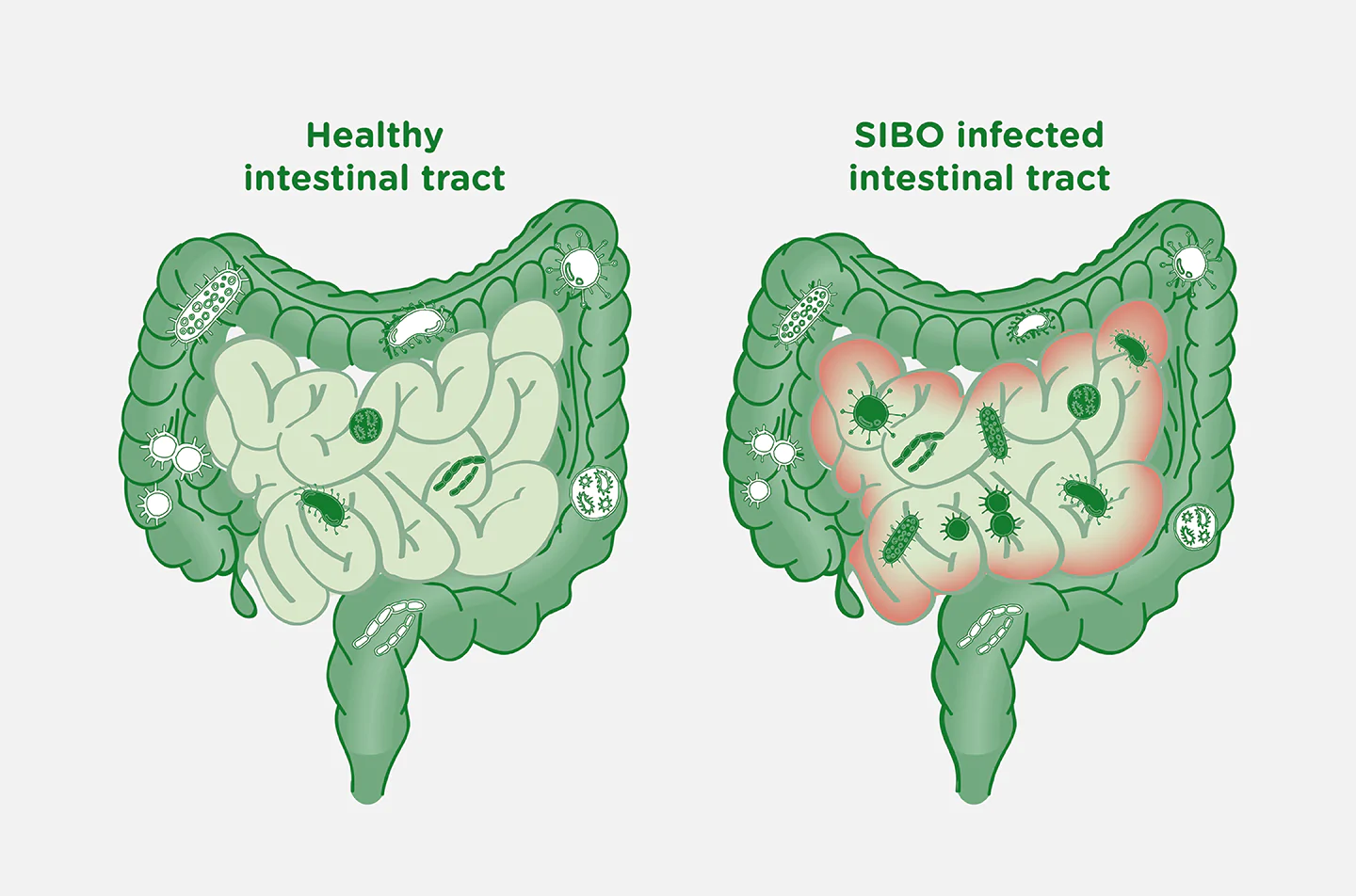Small Intestinal Bacterial Overgrowth (SIBO)
- Jahanara Monaf

- Oct 16, 2022
- 2 min read
SIBO is categorised as a serious condition affecting the Small Intestine that occurs when bacteria that normally grow in other parts of the gut start growing in the Small Intestine causing pain and diarrhoea. Basically, bacteria from the Large Intestine migrates to the Small Intestine, which is meant to be pretty clear of bacteria. Because the small intestine is full of food, the bacteria feeds on it causing unpleasant symptoms.
For many people that overgrowth produces hydrogen gasses, disrupts digestion, impairs nutrient absorption and causes abdominal pain, diarrhea and exhaustion. For others, the overgrowth produces both hydrogen and methane gases. This also disrupts digestion, impairs nutrient absorption and causes abdominal pain, but it also causes severe constipation, acid reflux and burping. In both cases SIBO will cause gastritis, damaging the lining of the Small Intestine. This damaged lining or leaky gut allows larger molecules of food to enter the bloodstream and can trigger food sensitivities and possibly even trigger autoimmune diseases.
SIBO is a relatively new diagnosis, it has long been treated as IBS (irritable bowel syndrome) or as candida overgrowth. Because of the complexity and degree of recurrence, it is best treated through a personalised approach and assessment, which is how TICM works, addressing the root cause.
According to TICM, once SIBO forms, it is classified as damp heat stagnation in the lower regions. Damp heat is heavy and a breeding ground for bacteria and pathogens, usually settling in the Stomach area. The underlying cause(s) that create damp heat and SIBO depend on the individual.
They can look like the following:
Liver Qi stagnation: when the Liver is weakened, it attacks the Spleen and Stomach, leading to dysfunctioning which manifests as IBS symptoms. The Liver can become weakened due to emotional imbalances/disturbances, poor diet full of greasy foods and alcohol, lifestyle habits like lack of sleep and staying up late, all leading to IBS symptoms and creating damp heat.
Spleen Yang (warm) deficiency: creates dampness because the Spleen is not assimilating food properly, creating excess fluids that become trapped and turn into a murky like Stomach environment. Loose stools, fatigue and bloating are common symptoms.
Treatment:
Book in with your TICM doctor who will do an individualised diagnosis then work out an individualised treatment plan for you.
For SIBO, I opt to treat the patient via acupuncture and moxibustion for elimination of damp heat from the body whilst regulating the Liver, Stomach, Spleen and Intestines and then prescribe a herbal formula to cook up and take at home as a continuation of the treatment done in clinic.
I would also make adjustment to the food and nutrition for the patient.



Comments